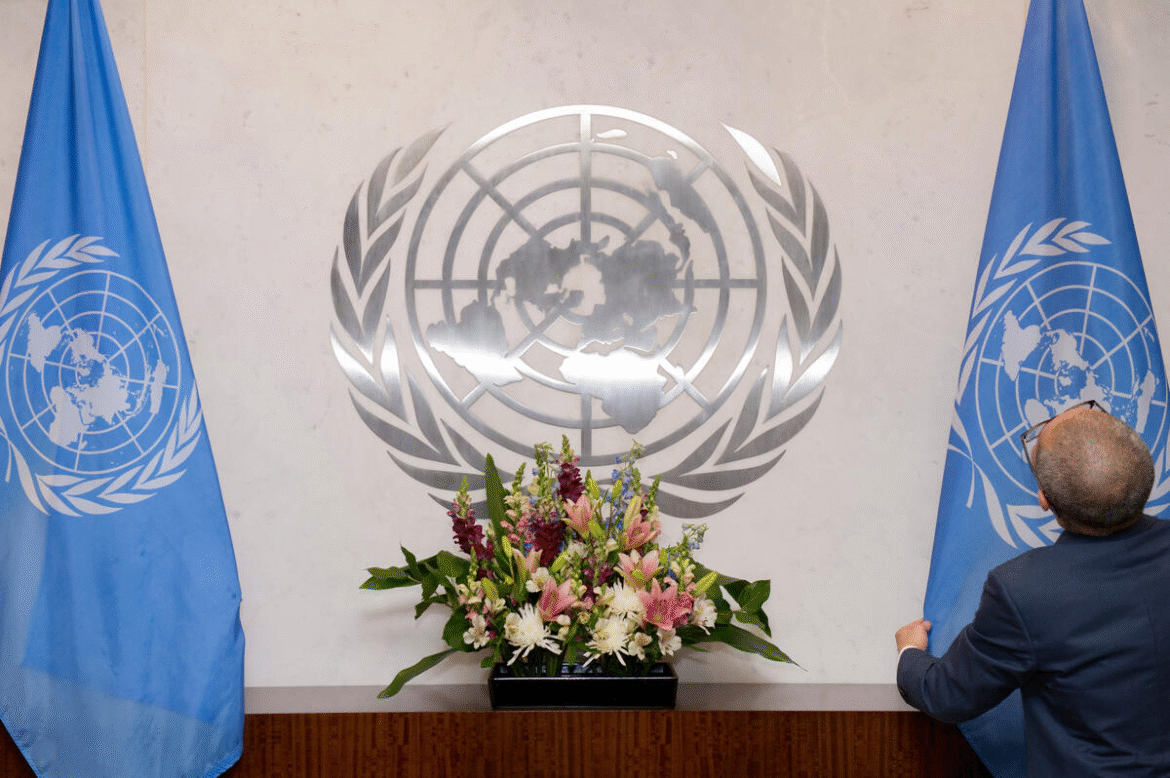AI Generated Summary
- “It is clear that Pakistan remains in violation of the Indus Waters Treaty,” he declared, urging the international community to recognise that lasting peace and cooperation on shared rivers cannot coexist with the continued use of terrorism as a policy tool.
- “As technology for dam infrastructure has transformed, some of the older projects now face serious safety concerns,” he noted, citing a 2012 terror attack on the Tulbul Navigation Project in Jammu and Kashmir as evidence of the risk posed to both facilities and local populations.
- In a forceful address to the United Nations Security Council’s Arria Formula meeting on “Protecting Water in Armed Conflict,” India’s Permanent Representative to the UN, Ambassador Parvathaneni Harish, accused Pakistan of peddling “disinformation” about India’s commitment to the 1960 Indus Waters Treaty.
In a forceful address to the United Nations Security Council’s Arria Formula meeting on “Protecting Water in Armed Conflict,” India’s Permanent Representative to the UN, Ambassador Parvathaneni Harish, accused Pakistan of peddling “disinformation” about India’s commitment to the 1960 Indus Waters Treaty. He argued that Islamabad’s repeated support for cross-border terrorism has violated not only the spirit of the treaty but also endangered civilian lives, regional harmony, and economic development.
“India has always acted responsibly as the upper riparian state,” Ambassador Harish asserted, before detailing what he called Pakistan’s six decades of breaches. He noted that while the treaty’s Preamble pledges “good will and friendship,” Pakistan has waged three full-scale wars against India and orchestrated thousands of terror attacks over the past 65 years. According to Indian figures, more than 20,000 lives have been lost to Pakistan-backed terrorism, including the April 22 assault on tourists in Pahalgam, Jammu and Kashmir, which claimed 26 civilian lives.
In response to that “dastardly” attack, India announced on April 25 that it would place the Indus Waters Treaty “in abeyance” until Pakistan “credibly and irrevocably” renounces support for militant groups. Ambassador Harish emphasised that this measure is not taken lightly but is a necessary consequence of Islamabad’s refusal to curb terror networks that, he said, “hold hostage the lives of civilians, religious harmony and economic prosperity.”
Harish further pointed out that India has repeatedly sought to update the treaty’s provisions to reflect modern challenges—from enhanced dam-safety standards to the need for additional hydropower capacity—only to be rebuffed by Pakistan’s “obstructionist” stance. “As technology for dam infrastructure has transformed, some of the older projects now face serious safety concerns,” he noted, citing a 2012 terror attack on the Tulbul Navigation Project in Jammu and Kashmir as evidence of the risk posed to both facilities and local populations.
Earlier the same day, at a separate Security Council debate on “Protection of Civilians in Armed Conflict,” Ambassador Harish sharply criticised Pakistan’s “grossly hypocritical” posture. He highlighted that nations sponsoring terrorism “make no distinction between terrorists and civilians,” and therefore have no moral authority to lecture on civilian protection. He recalled the 2008 Mumbai attacks and the recent Pahalgam massacre as examples of Pakistan’s sustained campaign to undermine Indian society and morale.
Tensions along the India-Pakistan border escalated dramatically in the aftermath of the Pahalgam killings. In late April, India launched “Operation Sindoor,” striking militant bases in Pakistan and Pakistan-occupied Kashmir on May 7. Pakistan retaliated with attempted strikes on Indian military installations on May 8, 9 and 10. Hostilities ceased following talks between the two countries’ Directors General of Military Operations on May 10, but the diplomatic fallout continues to reverberate at the United Nations.
Ambassador Harish concluded by reaffirming India’s willingness to engage on the Indus Waters Treaty—and on broader water-security issues—once Pakistan ends its state-sponsored terror campaigns. “It is clear that Pakistan remains in violation of the Indus Waters Treaty,” he declared, urging the international community to recognise that lasting peace and cooperation on shared rivers cannot coexist with the continued use of terrorism as a policy tool.




